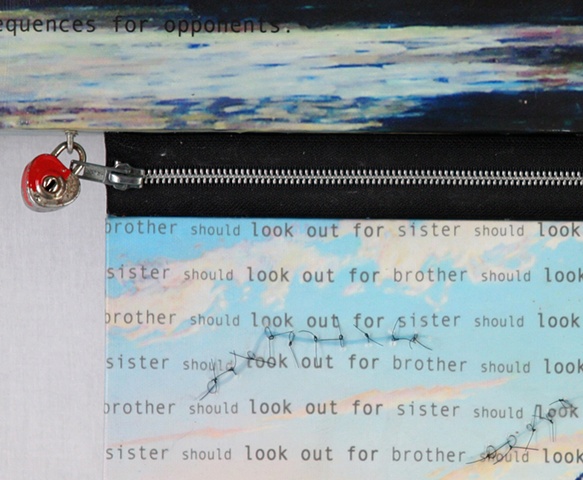Family Matters
The text reads on upper canvas:
Sibling rivalry has long been recognized as a key element in family conflict. Children tend to compete for parental affection, which they want and need. Through that competition, siblings can develop ambivalence and some enmity toward each other.
One of the most important contributing factors to a dysfunctional sibling
relationship is maternal depression. Mothers with depression have difficulty
negotiating conflicts. Mothers who are depressed are often preoccupied with
their own concerns and have difficulty in learning to attend to the needs of
their children. Depressed mothers of young children may be less responsive and
less consistent. Depressed mothers may be critical of their children and
perceive them in a negative light and be less able to establish open
communication.
Sibling rivalry can also escalate into maltreatment when parents show
differential treatment to their children and compare their children in a manner
that increases feelings of competitiveness and jealousy. Another key factor is
how much positive behavior is exchanged when the family is not fighting and
whether or not conflicts are resolved.
In family conflict the form of the conflict is as important as how much of it
occurs. One style involves endless bickering in which any kind of settlement or
resolution is rare. Such an irrational style often creates a negative family
climate that erodes positive family bonds. A family may avoid any kind of
conflict at the first sign of trouble. Conflict may be seen as being too
stressful or simply inappropriate among family members. Such an avoidant behavior
often includes covert conflict in which secretive actions lead to negative
consequences for opponents.
Text on lower canvas reads in various size fonts: "Brother should look out for sister
Sister should look out for brother." It repeats.
